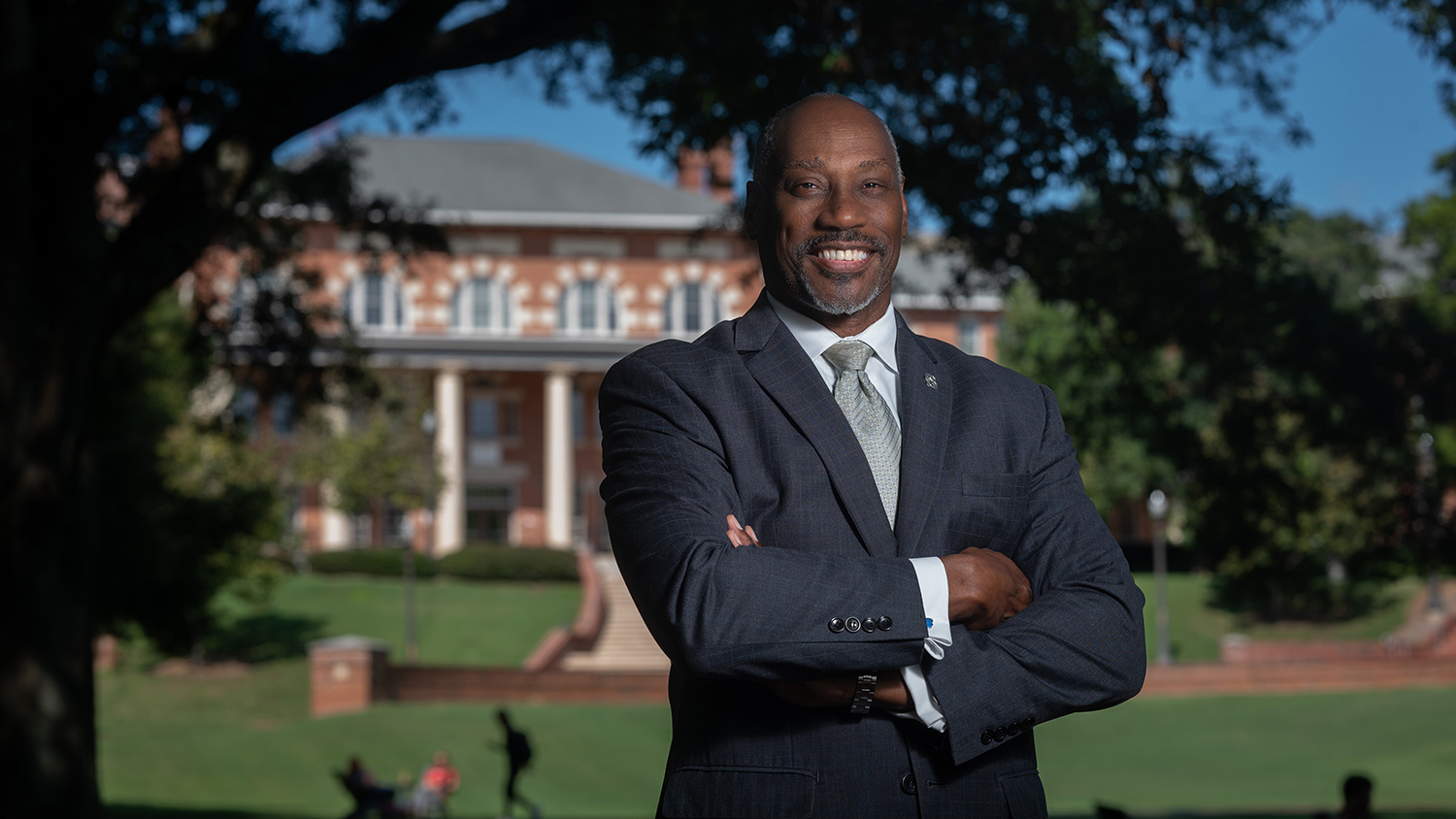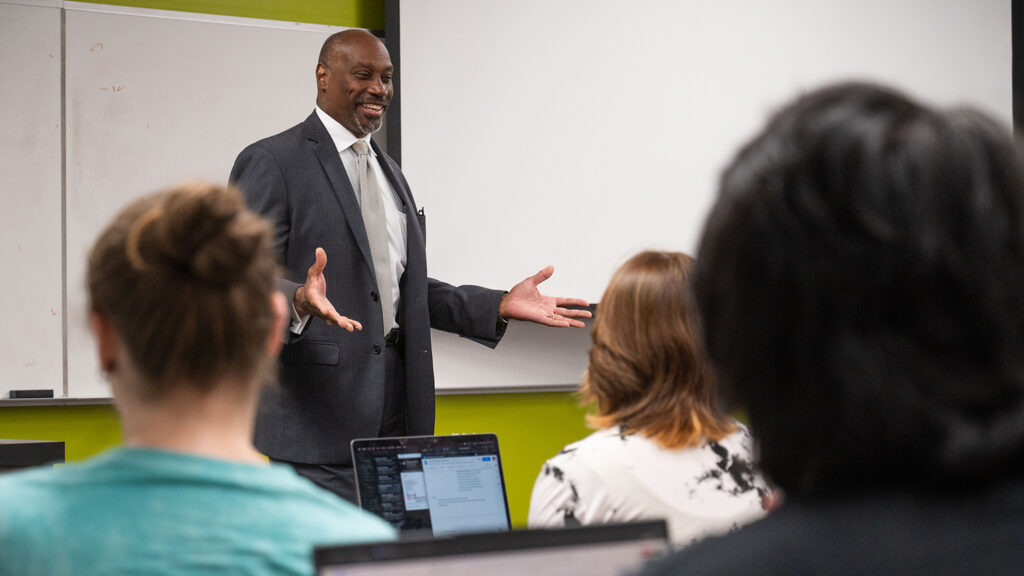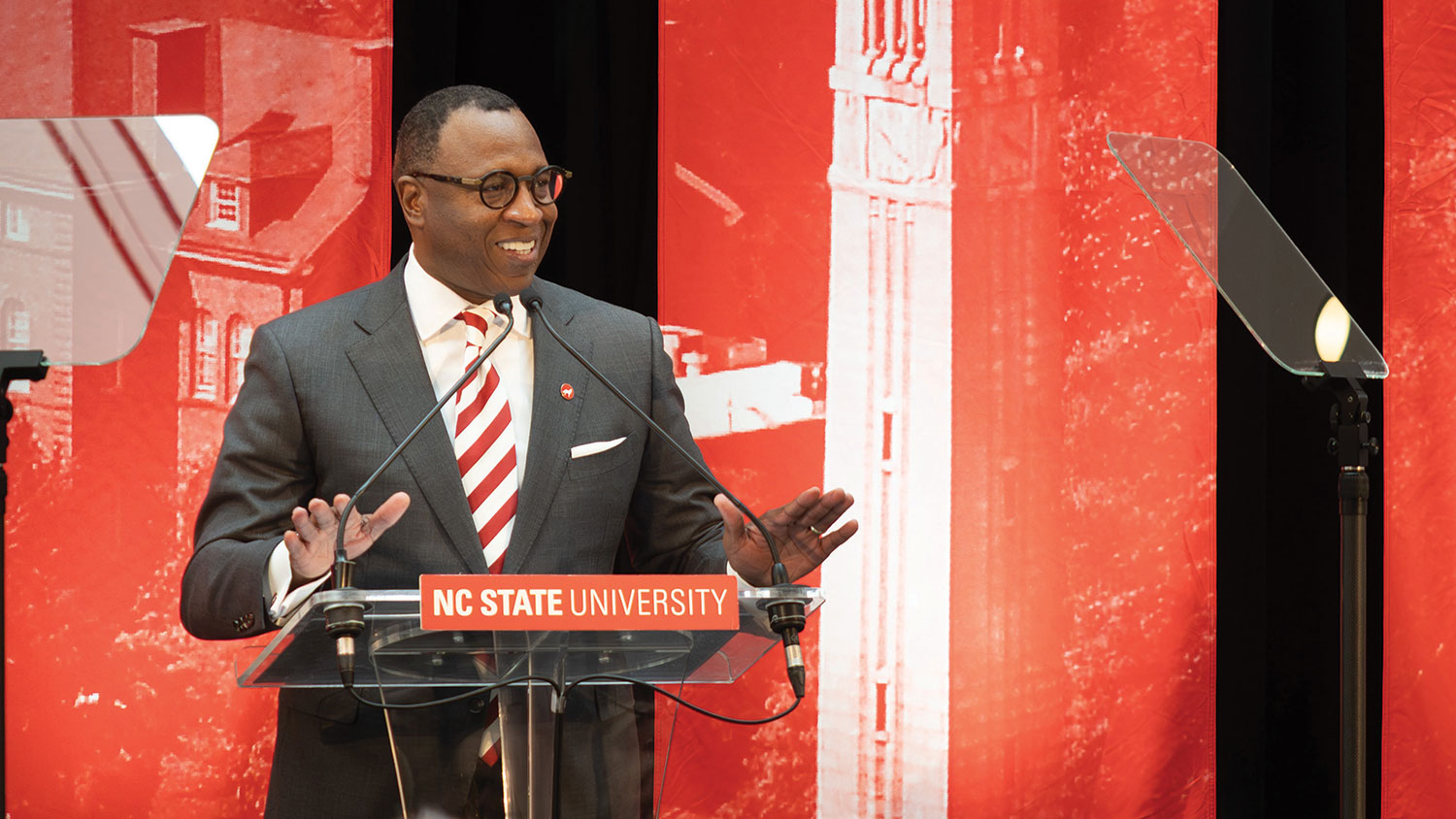Talking Global Security with Gentry Smith
The NC State Alumnus is the Assistant Secretary of State for Diplomatic Security

From NC State’s campus to the world stage.
That’s the career path political science alumnus Gentry Smith traveled to become assistant secretary of state for diplomatic security.
Smith, the first Black special agent to fill the role, recently returned to campus. For two days, he talked with students about career opportunities within the Diplomatic Security Service (DSS) and adding more diversity within its ranks.
“As the law enforcement and security arm of the U.S. Department of State, we create an environment that allows our Foreign Service colleagues to conduct their diplomatic efforts safely,” said Smith, a 30-year DSS veteran who has lived and worked around the globe.
“I also feel our workforce must reflect what the country looks like,” he added.

Over the years, Smith has held different positions at DSS and in 2014, was named director of the Office of Foreign Missions, which carried the rank of ambassador. Though he retired in 2017, he returned in August 2021 when President Joe Biden appointed him assistant secretary.
We caught up with Smith to learn more about his job responsibilities, first year in the position, NC State visit and more.
What are your responsibilities?
I am responsible for protecting U.S government personnel, facilities, and information from criminal or technical attacks. That involves overseeing a staff of 50,000 employees — special agents, engineers, and other professionals — in 270 diplomatic posts worldwide and providing 24/7 cybersecurity to battle adversaries trying to gain access.
I also direct the department’s counterintelligence operation, investigate human trafficking and visa and passport violations, and protect the secretary of state and visiting foreign dignitaries.
What unique perspectives do you bring to the role?
I came up through the organization, so I understood how it worked from day one. That gives me the advantage of speaking the language, understanding what we are trying to do and relaying it to our personnel.
What have been your major accomplishments?
We handled such crises as the evacuation of the U.S. embassy staff in Afghanistan, followed by the withdrawal of more than 100,000 personnel from throughout the country. We also removed non-emergency U.S. government personnel from Ethiopia and closed and reopened the U.S. embassy in Ukraine.
We not only handled these crises but also helped policymakers find a way forward while providing security for the rest of the world.
What’s your role in securing the U.S. embassy in Ukraine?
Closing the embassy was a government leadership discussion, with my agency having a strong voice because the decision depended on our capabilities. Since our priority was to reduce the number of people, we identified critical employees who should remain and those we could move to a safer location.
We will assess and evaluate the situation on an ongoing basis, respond accordingly and continue to support the Ukrainian people in gaining control of their country and achieving their democratic aspirations.
What is your role in non-conflict situations like the United Nations General Assembly?
As our largest protection operation each year, we have more than 700 diplomatic security personnel on the ground in midtown Manhattan for a week or more. In addition, we provide more than 43 different delegations with protective security details.
Through the Overseas Security Advisory Council (OSAC), we provide U.S.-based organizations with free security and safety-related information and tools to operate in a foreign country. OSAC’s public-private partnership serves more than 5,000 organizations and 18,000 individual members with operations outside the U.S.
How do you balance diplomacy and defense?
One supports the other. When the Department of Defense (DOD) takes on a more prominent role, that means diplomacy didn’t work. To avoid getting to that point, we discuss how DOD can support diplomatic efforts through training, humanitarian efforts and policy perspectives.
From a security angle, we work with DOD on ways to keep our people safe. That could mean DOD making personnel available to augment our security operation in a high-threat location to us offering their personnel anti-terrorism training.
What was the goal of your visit to NC State?
Broaden students’ perspectives. I informed them that their College of Humanities and Social Sciences education prepares them to do anything they want to do.
I loved the opportunity to study here and the preparation I received. I wanted students to know that if I could do it, it could be done.
During his visit, Smith also announced the new William D. Clarke, Sr. Diplomatic Security Fellowship. It is a two-year graduate program designed for individuals interested in pursuing a master’s degree and a career as a diplomatic security service special agent in the Foreign Service.


